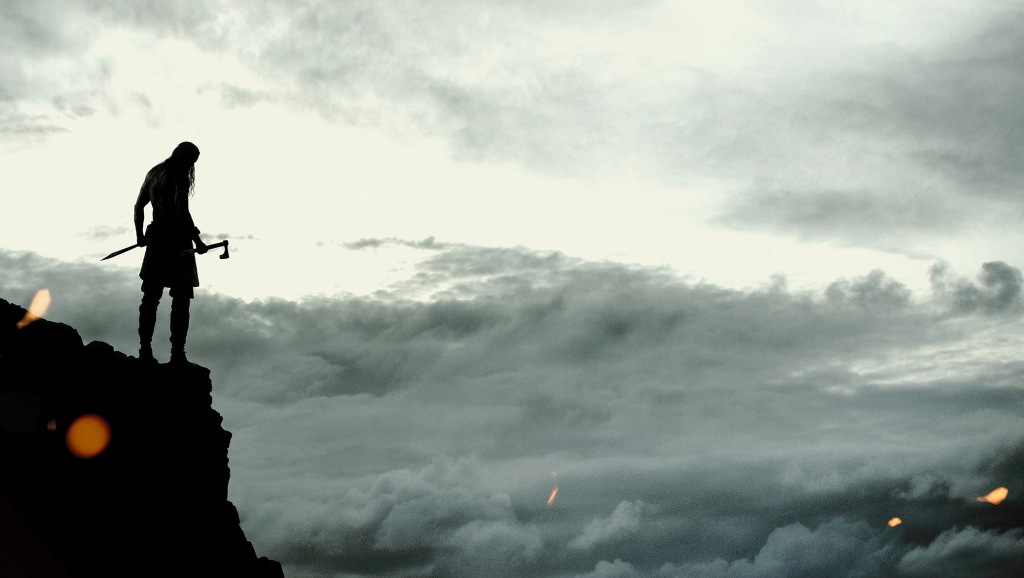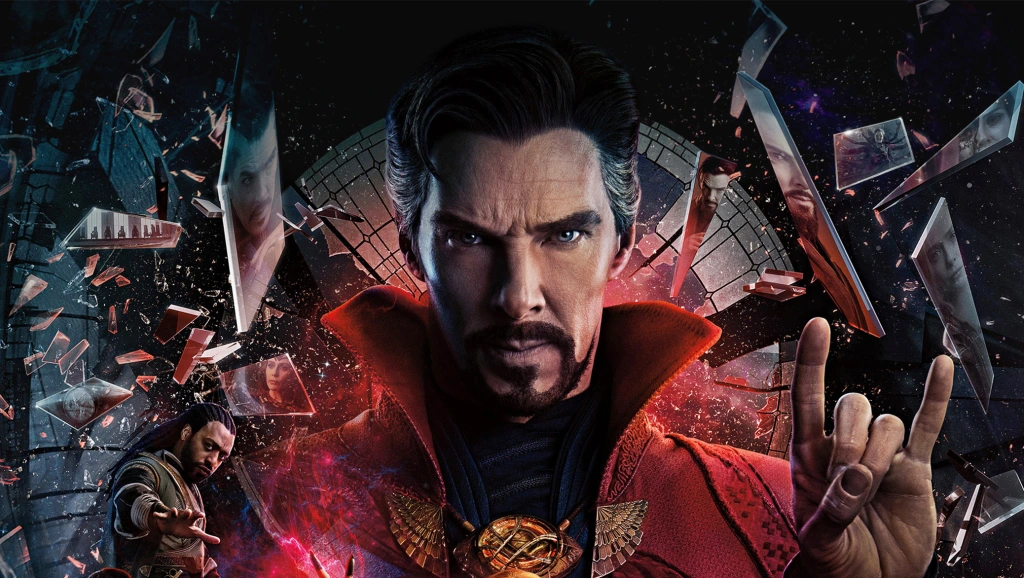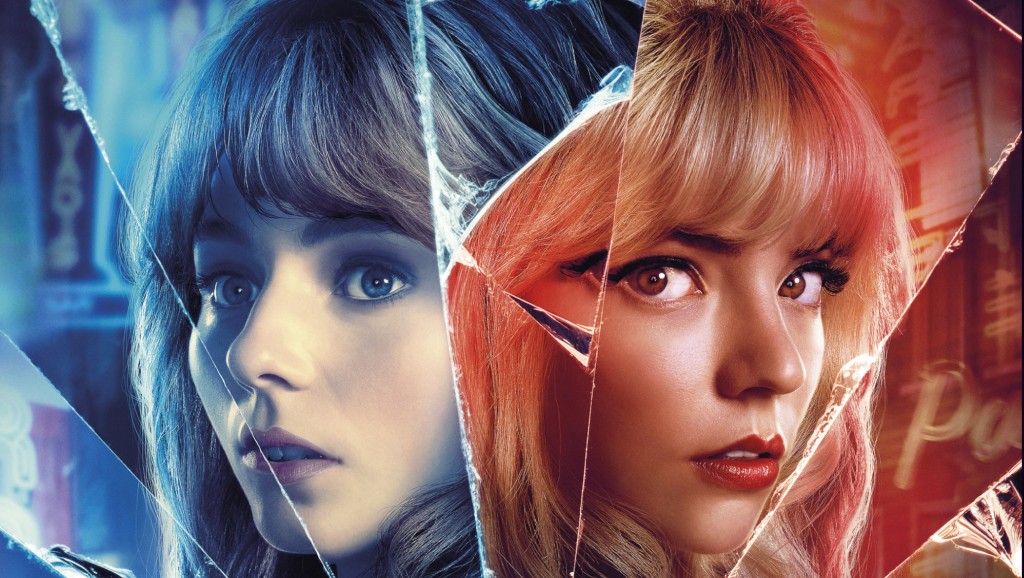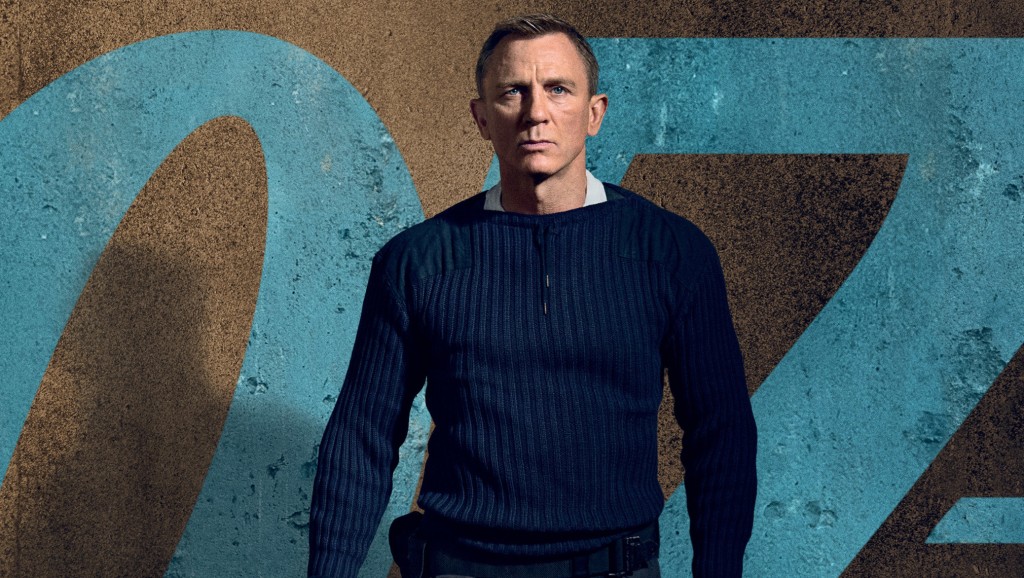The Northman is everything we expect from director Robert Eggers – dark, surreal, atmospheric with a poetic intimacy for character building. The horror (the psychological and the physical) – the driving essence behind his previous films – remains a prevailing and haunting undercurrent in servitude of Eggers’ thematic exploration.
Eggers continues to grow his craft as an auteur director. The Northman, the third feature-length film in his growing repertoire, already feels like a culmination of his visionary style and mood. For a director who has made notable, low-budget cinematic classics such as The Witch and The Lighthouse, the fascinating aspect behind his latest feature is its existence within mainstream Hollywood.
When Hollywood decides to pluck a director out of the indie pool to enter the corporate, ideological world of studio institutions, naturally, there’s a fear. Since the studio system transitioned into an IP-driven entity (long gone the days of the movie brats who changed the face of 70s cinema), creative control fits in line with the commercialisation of the movie market. Films have interwoven nostalgic callbacks into their production DNA, and if you happen to have a long-running series (e.g., the MCU), then it guarantees its impact at the box office. Streaming services – accelerated because of the pandemic – now provide an eco-system for studio content that ties in with the shifting nature of our viewing habits. Acquiring sought-after directors (like Thanos possessing the Infinity Stones) self-acknowledges their eagerness to work with the industry’s hottest talent. And that pressure for success comes with bigger budgets and bigger expectations.
There have been casualties with that system. Josh Trank, director of Chronicle, is a well-documented example on the pressures of early career success. Warner’s recent track record extends to their DC projects, starting with Zack Snyder’s Batman v Superman: Dawn of Justice and David Ayer’s Suicide Squad. The eventual WB launch of HBO Max during the pandemic led directors such as Denis Villeneuve and Christopher Nolan to voice their dismay at the lack of warning. The latter left the studio associated with his greatest achievements for Universal. Lucasfilm parted ways with creators Lord and Miller on Solo: A Star Wars Movie. Even Eggers recently spoke out about The Northman and its challenging process.

It’s a captivating experience watching a film marry between those two distinct worlds – the corporate and the visionary. On one hand, you’re seeing Eggers in his idiosyncratic and unapologetic element, flexing every muscle of the cinematic screen to deliver Viking folklore and mysticism. The other – a studio wondering if they knew what they signed up for! As a result, it’s Eggers’ most accessible film for his audience. But that transition also means a looser application of his work.
To its credit, The Northman is a film rarely seen, especially in this modern iteration of Hollywood, marking the return of large-scale historical epics. The kind where its slow-burn drama is built on the Shakespearian mechanics of love, greed, death, and betrayal (aka The Lion King but in live-action form). The kind where the film can pull off an impressive one camera tracking shot (thanks to cinematographer Jarin Blaschke) as Amleth (Alexander Skarsgård) brutally invades a village like a Nordic Terminator. In that veil comes a coming-of-age story; a young Amleth (Oscar Novak) witnesses the murder of his father, King Aurvandil War-Raven (Ethan Hawke) and the capture of his mother, Queen Gudrún (Nicole Kidman). With revenge in his heart, he vows vengeance against the man responsible for the betrayal – the King’s brother Fjölnir (played by the brilliant Claes Bang).
As with Eggers’ previous work, there’s a lot to unpack. What works is the attempted subversion of the story. Eggers and Sjón’s scripted tale of vengeance tackles everything from toxic masculinity, hyper-male and animalistic aggression, and the noble quests of honour. The subject bears a similar resemblance to Ridley Scott’s The Last Duel. Its Rashomon-style story was a gateway to Hollywood conventions and how characters believed in their own mythology and fantasy, viewing themselves through a heroic lens as bastions of morality. While The Northman doesn’t indulge too heavily in perspective storytelling, it’s worth mentioning how idolised stories pass on between generations, where the expectation of man is so potent, the belief imprints on their psyche and soul.
Skarsgård – majestic in the role – believes he is the chosen one, a primal vessel consumed by unrelenting rage where his retribution can restore the Kingdom’s respect. At noted points, it asks questions of its leading character. Does he have agency over his fate in a life that requires him to seek vengeance over his betrayers? Does hope exist in his brutal yet tunnel-visioned reality? Can he outrun fate bestowed upon him? Eggers sets up these existential questions like the psychological horrors he’s renowned for. With Amleth surrounded by visions, he slips the audience into a dream-like consciousness where the boundaries between reality and the otherworldly are seamless. Björk’s Seeress and Willem Dafoe’s Heimir the Fool relish the off-kilter opportunity to play characters who shape and destine Amleth’s life as a boyhood rite of passage. But it’s Anya Taylor-Joy’s Olga of the Birch Forest who provides the most impact in a multifaceted performance, combining the spiritualism of faith and the steely determination to escape her enslaved life. Together, they strategize and plot the eventual takedown of the Kingdom.

While Eggers excels in complex storytelling and engagement, the disappointing element is the lack of originality. Despite its deviated attempts to go off script, its trajectory is a linear story we’ve seen Hollywood do a thousand times without inventing anything new. Subsequently, that lack of cathartic satisfaction affects the runtime. At 2 hours and 16 mins, the material and depth are not sufficient to hold its pacing. Most likely, it will play better on a second outing, but the notable lapse in its middle phase is telling.
But when it hits, it truly does. Its $90 million investment is worth every penny. Its scenic yet brutal landscapes are mesmerising. Its sound design and score are impeccable, and every calibre of its production design immerses you into its sensory mood, right down to its blood, gore, and savage violence. And visually, it helps keep the rudimentary parts of the story above that investment threshold.
No complaints can be found from the rest of the cast. Hawke and Kidman have small roles but make every moment visibly count (particularly Kidman, who relishes every intricate detail of Queen Gudrún). Claes Bang is an excellent counterpoint to Amleth and a prime example of how noble quests and mythologies seek a different narrative on the truth. Taylor-Joy – already familiarised with Eggers’ trademarks thanks to her performance in The Witch – excels, ensuring a balance between the machismo and the story’s heart.
The Northman won’t be for everyone. It may fall short of being a masterpiece (and Eggers’ best film), but it’s hard not to begrudge it. Some films are worth the effort, and Eggers proves he’s worth the engagement.





Don’t Be Shy – Leave a Reply